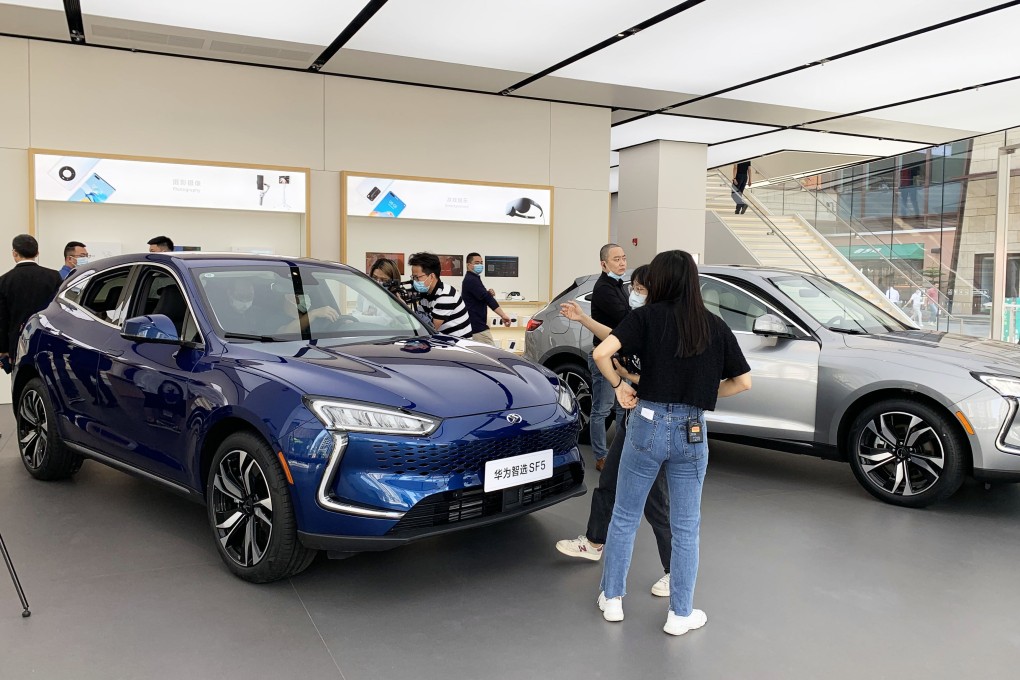Huawei starts selling smart cars in flagship stores across China to offset smartphone losses
- The SF5 model has been jointly launched by the Shenzhen-based tech giant and carmaker SERES
- Moves comes after senior executive said smart cars may help company offset declining smartphone sales

Huawei Technologies Co has started to sell smart vehicles in its flagship stores across China, as the telecoms equipment giant continues to look for new revenue drivers after its smartphone and network gear operations were hit by US sanctions.
The SF5 model, jointly launched by the Shenzhen-based tech giant and carmaker SERES, is the first vehicle to officially enter Huawei’s stores. The electric-petrol hybrid is equipped with Huawei’s HarmonyOS-based HiCar system and has a driving range of 180 kilometres in pure electric mode and over 1,000 kilometres in extended-range mode.
A Huawei salesman said the HiCar system enables users to switch between their mobile phone apps and the vehicle’s central control panel, and can connect the car to other smart devices such as TVs, air conditioners and others.
Richard Yu, the head of Huawei’s consumer business, said at a press event on Tuesday in Shanghai, that US sanctions had hurt its smartphone supply chain.
“The electric vehicle is the only product that can offset losses in our smartphone business as they command high prices – although overall sales are not yet as high as smartphones.”
Two cars – a blue and white version – could be seen in Huawei’s main store in downtown Shenzhen on Wednesday. It is also available at stores in Shanghai, Chengdu and Hangzhou and can be reserved on Huawei’s e-commerce platform Vmall with a deposit of 1,000 yuan (US$154).